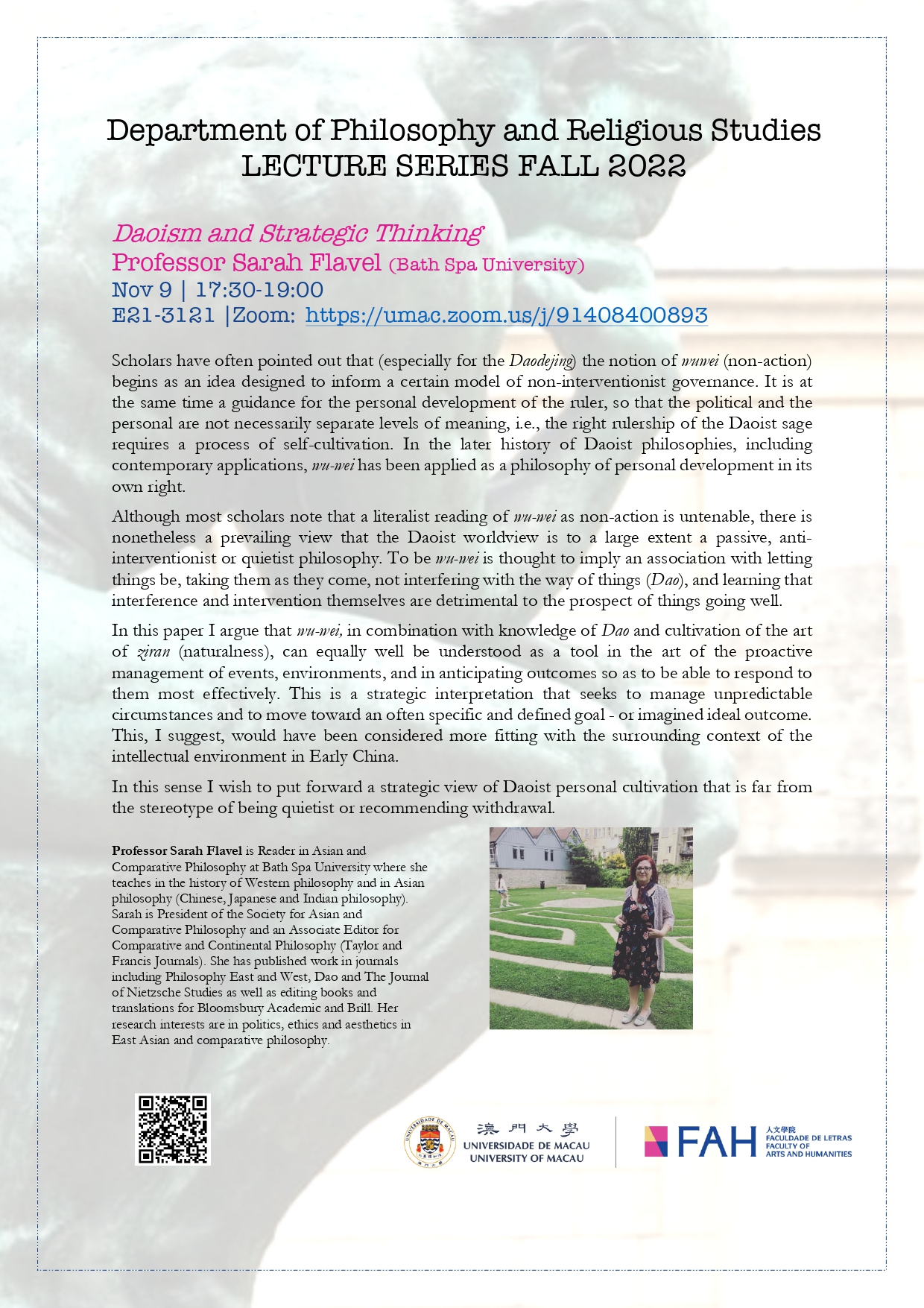

FAH/DPHIL Lecture Series – “Daoism and Strategic Thinking” by Prof. Sarah Flavel, Bath Spa University, United Kingdom
2022-11-09 @ 5:30 pm ~ 7:00 pm
Zoom: https://umac.zoom.us/j/91408400893
Abstract
Scholars have often pointed out that (especially for the Daodejing) the notion of wuwei (non-action) begins as an idea designed to inform a certain model of non-interventionist governance. It is at the same time a guidance for the personal development of the ruler, so that the political and the personal are not necessarily separate levels of meaning, i.e., the right rulership of the Daoist sage requires a process of self-cultivation. In the later history of Daoist philosophies, including contemporary applications, wu-wei has been applied as a philosophy of personal development in its own right.
Although most scholars note that a literalist reading of wu-wei as non-action is untenable, there is nonetheless a prevailing view that the Daoist worldview is to a large extent a passive, anti-interventionist or quietist philosophy. To be wu-wei is thought to imply an association with letting things be, taking them as they come, not interfering with the way of things (Dao), and learning that interference and intervention themselves are detrimental to the prospect of things going well.
In this paper I argue that wu-wei, in combination with knowledge of Dao and cultivation of the art of ziran (naturalness), can equally well be understood as a tool in the art of the proactive management of events, environments, and in anticipating outcomes so as to be able to respond to them most effectively. This is a strategic interpretation that seeks to manage unpredictable circumstances and to move toward an often specific and defined goal – or imagined ideal outcome. This, I suggest, would have been considered more fitting with the surrounding context of the intellectual environment in Early China.
In this sense I wish to put forward a strategic view of Daoist personal cultivation that is far from the stereotype of being quietist or recommending withdrawal.
Bio
Sarah Flavel is Reader in Asian and Comparative Philosophy at Bath Spa University where she teaches in the history of Western philosophy and in Asian philosophy (Chinese, Japanese and Indian philosophy). Sarah is President of the Society for Asian and Comparative Philosophy and an Associate Editor for Comparative and Continental Philosophy (Taylor and Francis Journals). She has published work in journals including Philosophy East and West, Dao and The Journal of Nietzsche Studies as well as editing books and translations for Bloomsbury Academic and Brill. Her research interests are in politics, ethics and aesthetics in East Asian and comparative philosophy.

